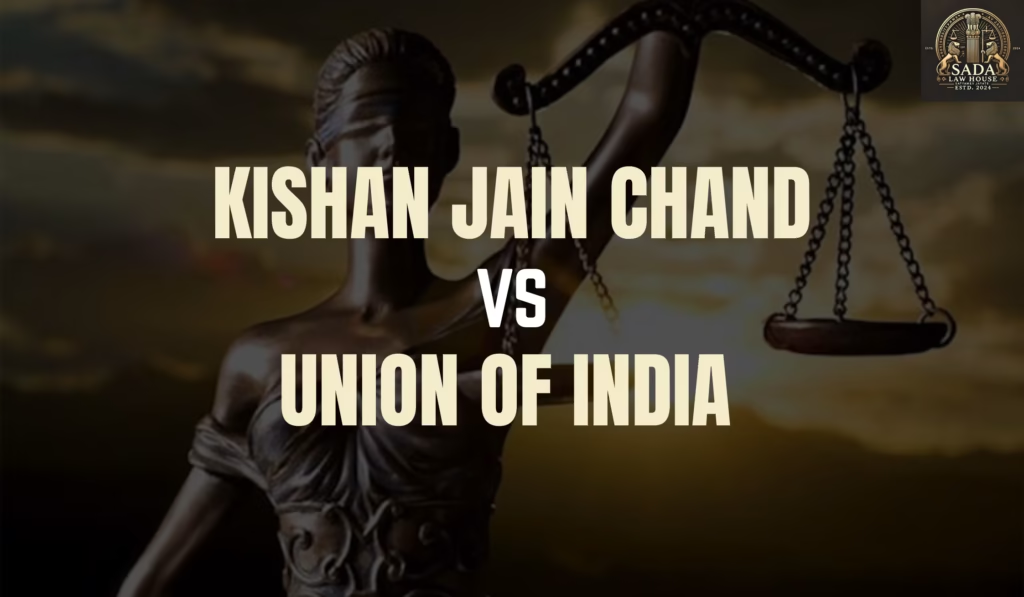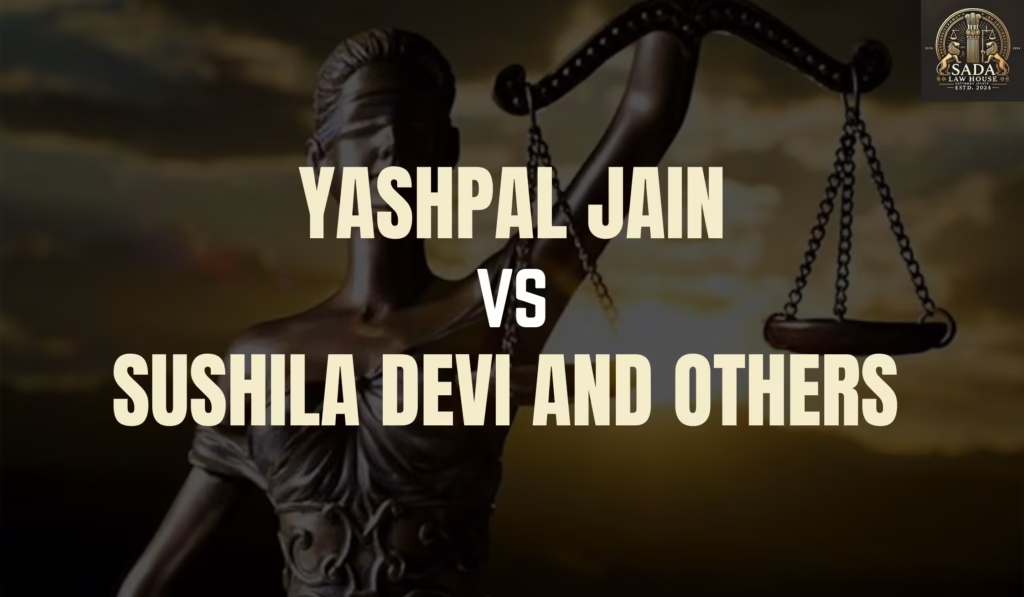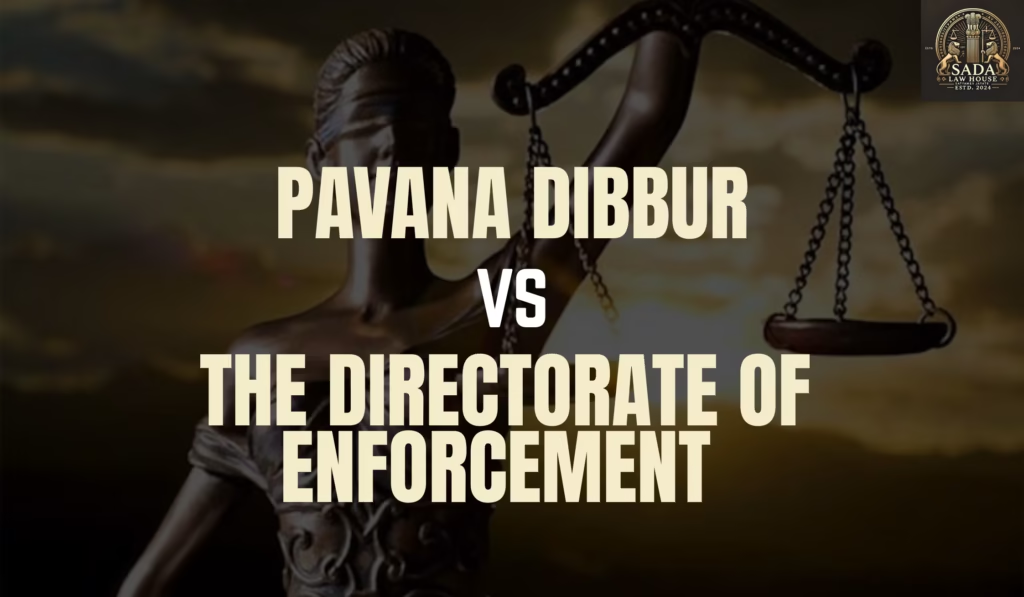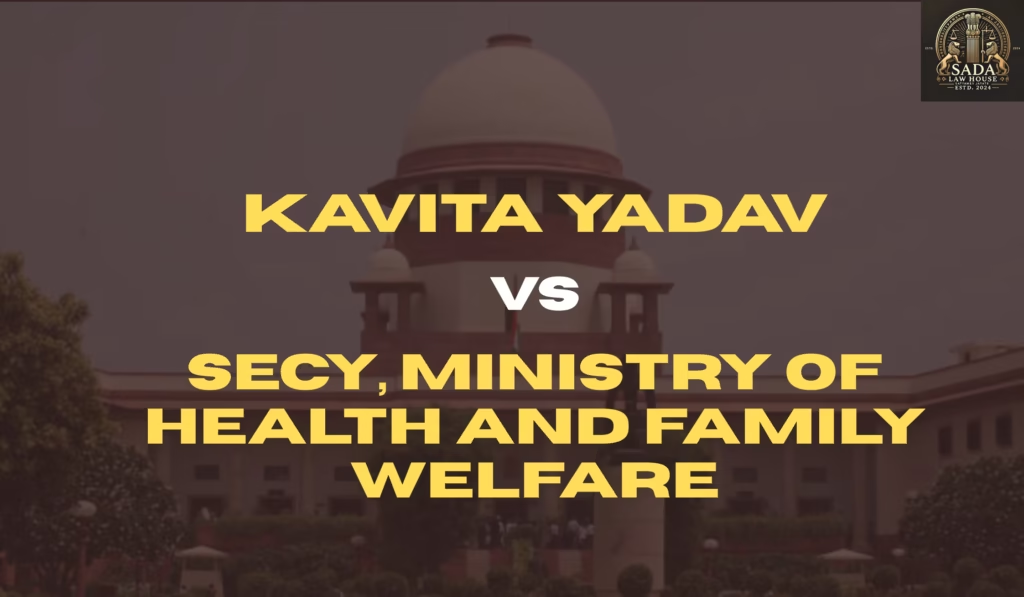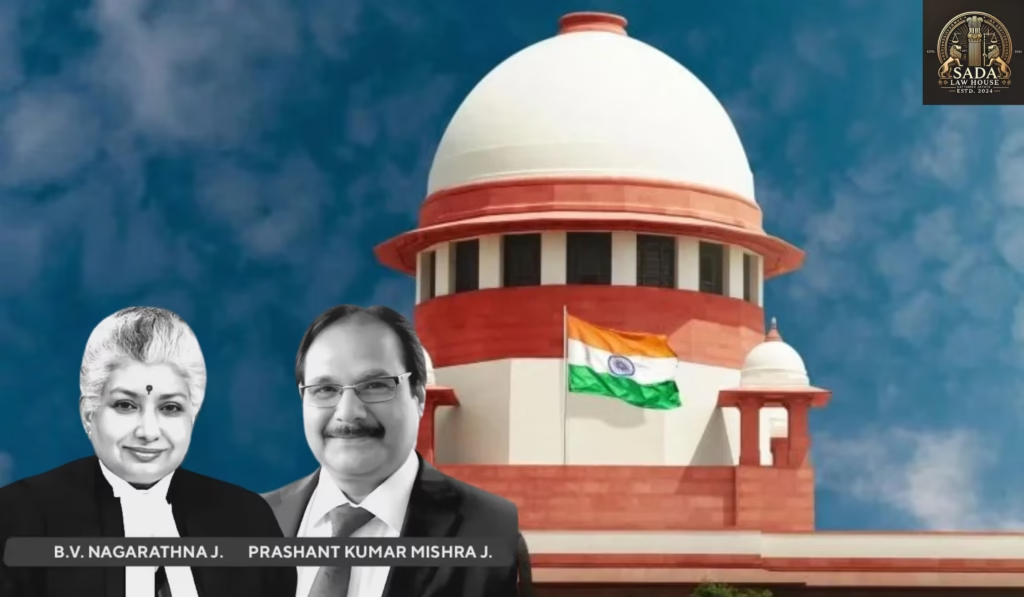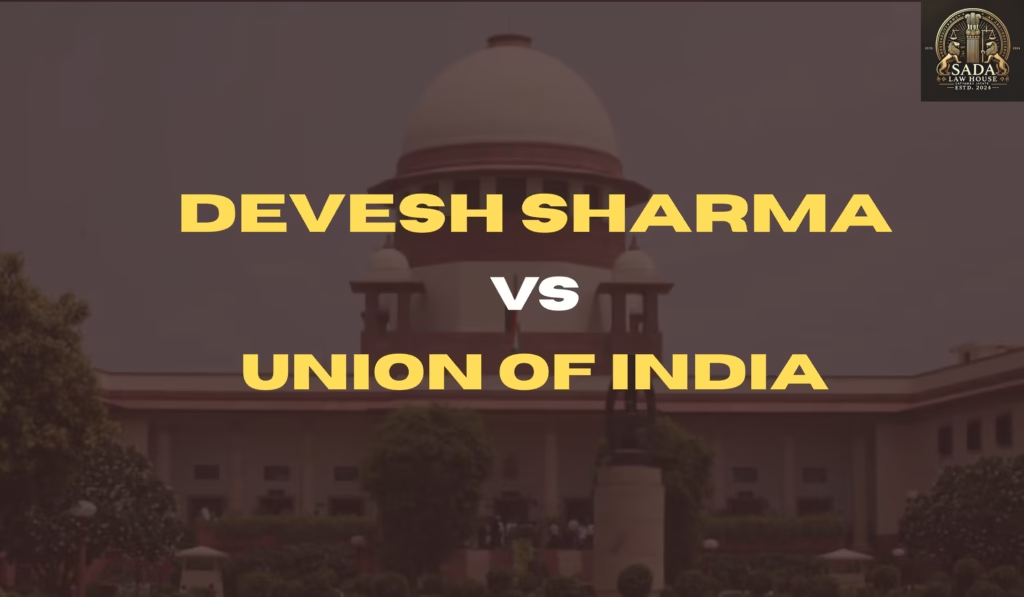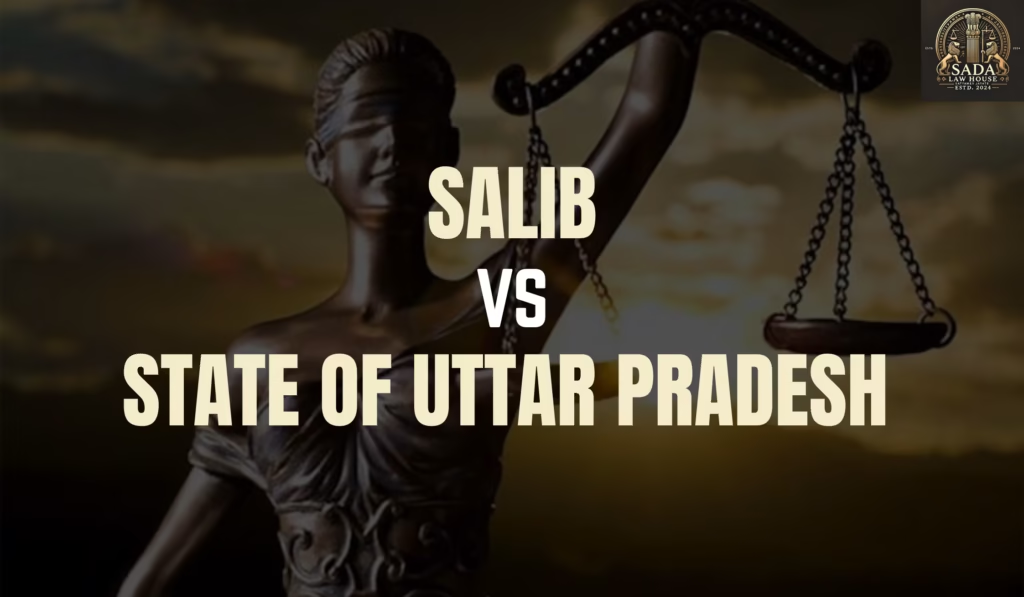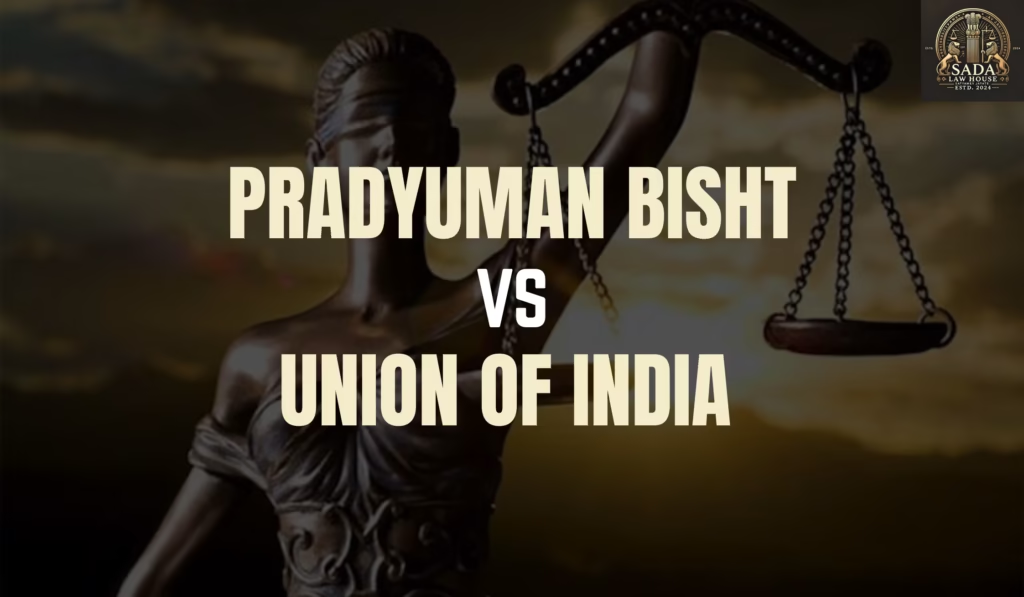Supreme Court Directs Streamlined Implementation of RTI Act for Easier Access to Information
Trending Today Supreme Court Directs Streamlined Implementation of RTI Act for Easier Access to Information Remission Shouldn’t Be Denied Solely on Reports of Presiding Judge or Police: Supreme Court Lays Down Factors for Premature Release Supreme Court Issues 12 Key Directions for Speedy Trial of Civil Cases ED Cannot Invoke PMLA Without Scheduled Offence: Supreme Court in Pavana Dibbur Case Maternity Benefits Must Extend Beyond Contract Period: Supreme Court Landmark Ruling Secunderabad Club v. Commissioner of Income Tax-V (2023): Supreme Court Rules Interest Income on Bank Deposits Taxable Devesh Sharma v. Union of India (2023): Supreme Court Rules B.Ed. Holders Ineligible for Primary Teaching Posts Salib v. State of Uttar Pradesh (2023): Supreme Court Denies Plea to Quash Criminal Intimidation FIR Pradyuman Bisht v. Union of India (2023) — Supreme Court Mandates Enhanced Court Security and Digitization Dreams Deferred: Odisha’s Young Engineers Caught in Recruitment Crossfire Supreme Court Directs Streamlined Implementation of RTI Act for Easier Access to Information NISHA KUMARI 08 June 2025 In Kishan Jain Chand v. Union of India (2023), the Supreme Court mandates virtual hearings and digital portals for State Information Commissions to enhance public access to information under the Right to Information Act, 2005. Introduction The landmark case Kishan Jain Chand v. Union of India addresses crucial reforms for the effective implementation of the Right to Information Act, 2005 (RTI Act). The petition filed under Article 32 of the Constitution of India highlights the challenges faced by citizens, particularly those in rural and remote areas, in accessing State Information Commissions (SICs). The Supreme Court directed modernization of SIC procedures, including virtual hearings and online filing systems, to promote transparency and facilitate easier access to justice. Facts of the Case The petitioner sought judicial intervention to improve the functioning of State Information Commissions (SICs), statutory bodies established under the RTI Act to adjudicate appeals and complaints related to information requests. Currently, most SICs are headquartered in state capitals and conduct hearings only in person, which creates significant hardships for applicants from distant regions due to travel costs and logistical difficulties. Additionally, unlike the Central Information Commission (CIC), many SICs lack online portals for filing RTI complaints or appeals, limiting accessibility. The petitioner urged the Court to mandate digital infrastructure improvements and virtual hearing options to ensure the RTI Act’s objectives of affordable and easy access to information are fulfilled. Notable procedural updates: The Court issued a notice in April 2021, followed by hearings in April and July 2023, leading to the present judgment. Issue of the Case The Supreme Court examined the following issues: Should SICs be required to provide both physical and virtual hearings for RTI complaints and appeals, supported by adequate financial and technical resources from State Governments? Should SICs establish fully functional digital portals allowing: Online filing of RTI complaints and appeals Tracking of case statuses Uploading of daily orders and judgments Publication of cause lists Submission of annual reports under Section 25 of the RTI Act Should SICs adopt strict timelines, ideally resolving complaints within four months? Should there be guidelines on the minimum daily case resolution targets for Information Commissioners? Should SICs ensure imposition and collection of penalties on Public Information Officers violating RTI provisions under Section 20(1)? Judgment The Supreme Court, led by Justice D.Y. Chandrachud, delivered the judgment on 9 October 2023 with key directives: 1. Virtual Hearings for SICs The Court recognized that in-person hearings at SICs in state capitals pose financial and logistical barriers for many citizens. It held that virtual hearings must be provided as an alternative to ensure fair, effective access to justice under the RTI Act. 2. Online Filing and Digital Portals Acknowledging that electronic submission of RTI applications is permitted by the RTI Act, the Court ordered all SICs to develop user-friendly online portals similar to those operated by the Central Information Commission, facilitating appeals and complaints filing. 3. Judicial Oversight for Implementation The Court directed all High Courts’ Registrars General to draft and implement necessary rules under Sections 2(e)(iii) and 28 of the RTI Act to enable virtual hearings and online filing at district and High Court levels, ensuring timely and uniform compliance. Conclusion The Supreme Court underscored the fundamental importance of accessible information commissions as pillars of the right to information, which is intertwined with constitutional rights such as: Article 14 – Right to Equality Article 19(1)(a) – Freedom of Speech and Expression Article 21 – Right to Life and Personal Liberty The Court mandated that all State Information Commissions must implement hybrid hearing options (both physical and virtual), with virtual links clearly listed in daily cause lists by 31 December 2023. This ruling is a major step toward digital empowerment and ensuring that RTI rights are accessible to all citizens irrespective of geography or economic status. Leave a Reply Cancel Reply Logged in as Sadalaw. Edit your profile. Log out? Required fields are marked * Message* Case Laws Supreme Court Directs Streamlined Implementation of RTI Act for Easier Access to Information Supreme Court Directs Streamlined Implementation of RTI Act for Easier Access to Information Sadalaw • June 8, 2025 • Case law • No Comments Remission Shouldn’t Be Denied Solely on Reports of Presiding Judge or Police: Supreme Court Lays Down Factors for Premature Release Remission Shouldn’t Be Denied Solely on Reports of Presiding Judge or Police: Supreme Court Lays Down Factors for Premature Release Sadalaw • June 8, 2025 • Case law • No Comments Supreme Court Issues 12 Key Directions for Speedy Trial of Civil Cases Supreme Court Issues 12 Key Directions for Speedy Trial of Civil Cases Sadalaw • June 8, 2025 • Case law • No Comments 1 2 3 … 5 Next »

